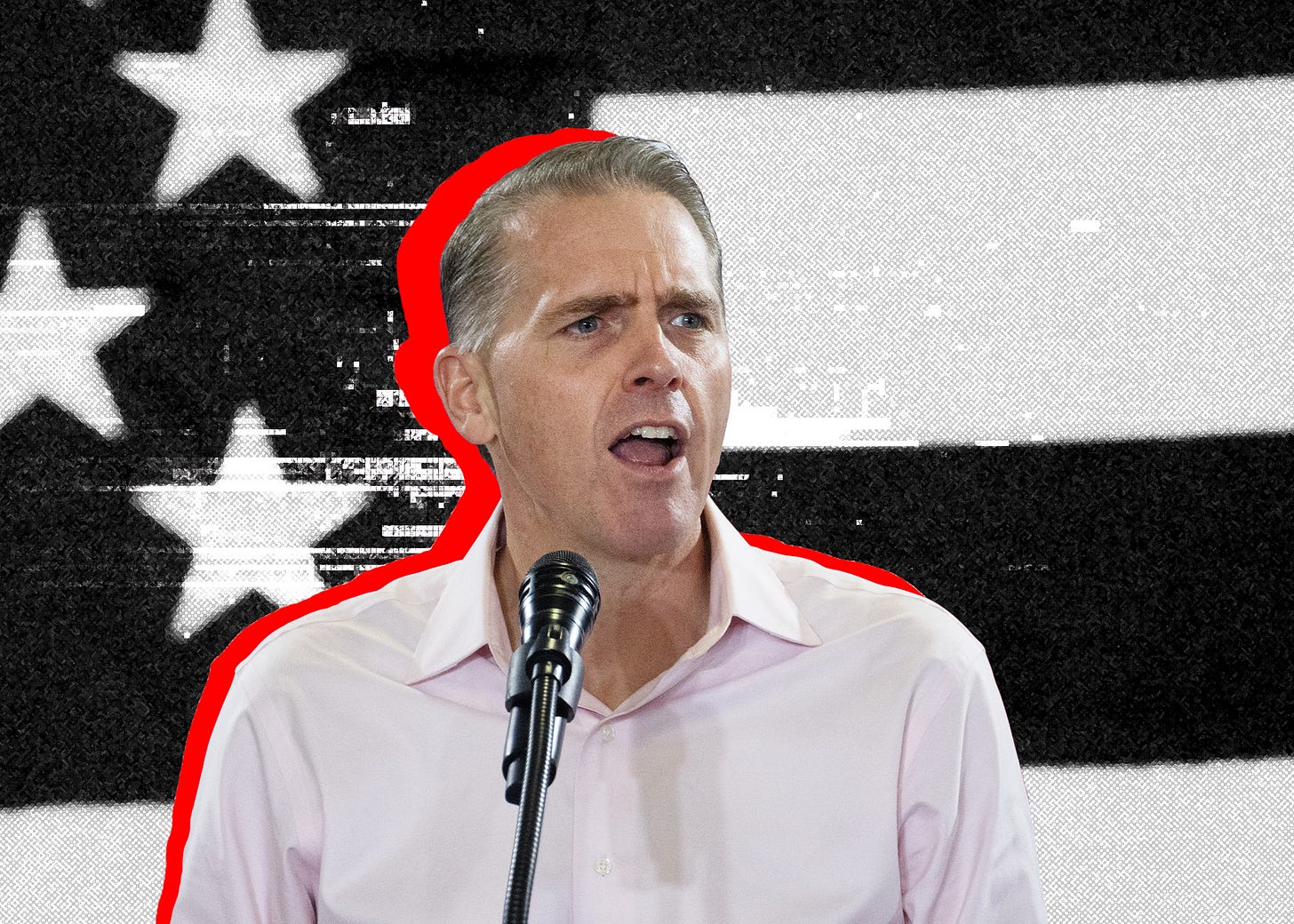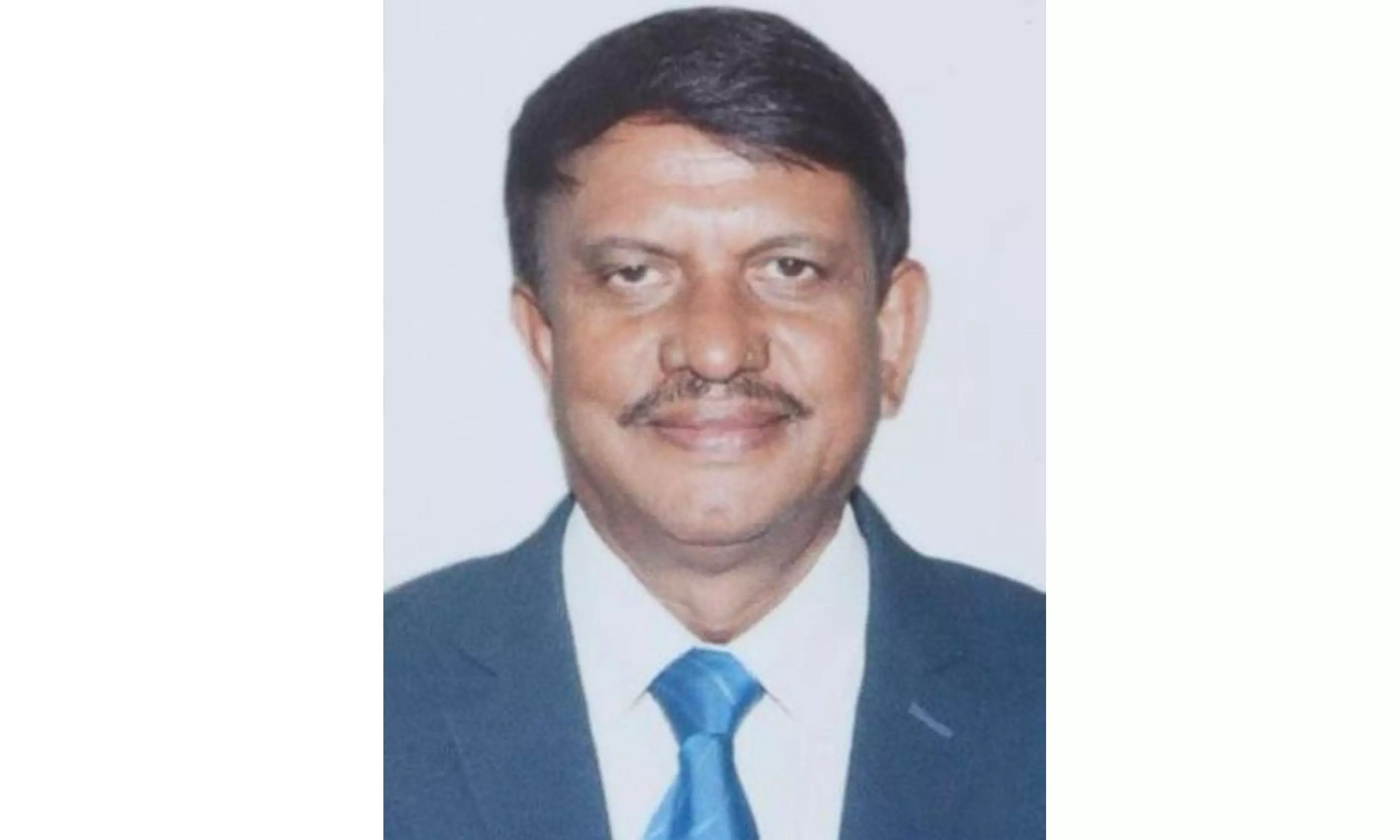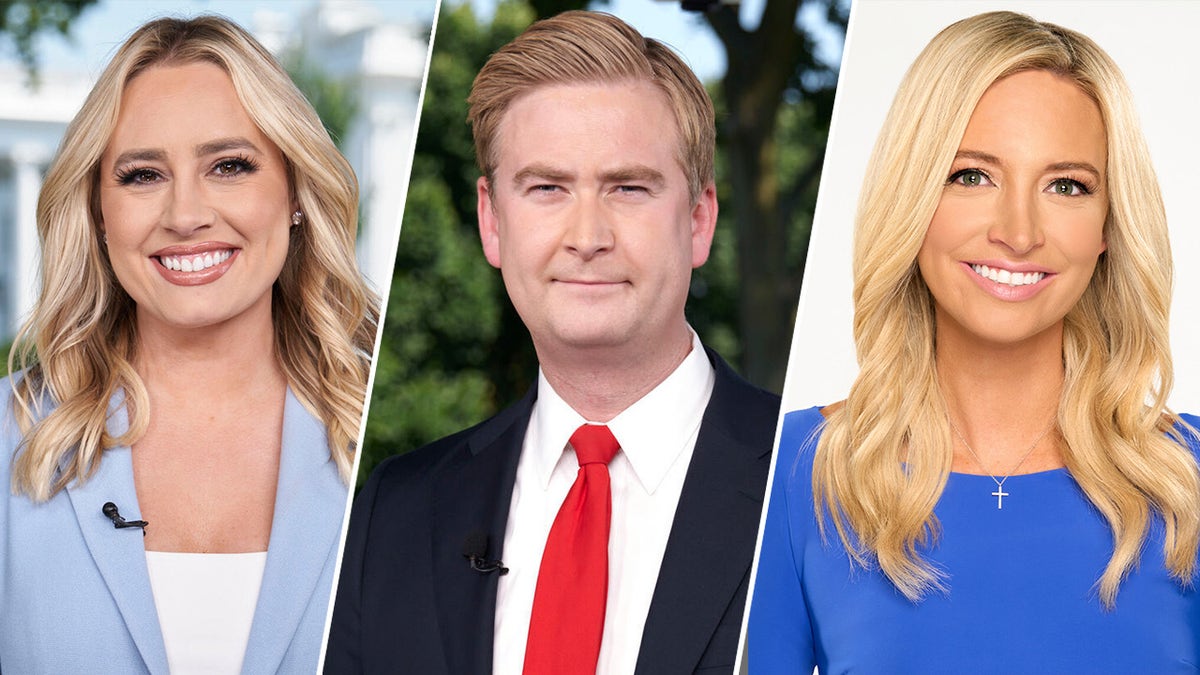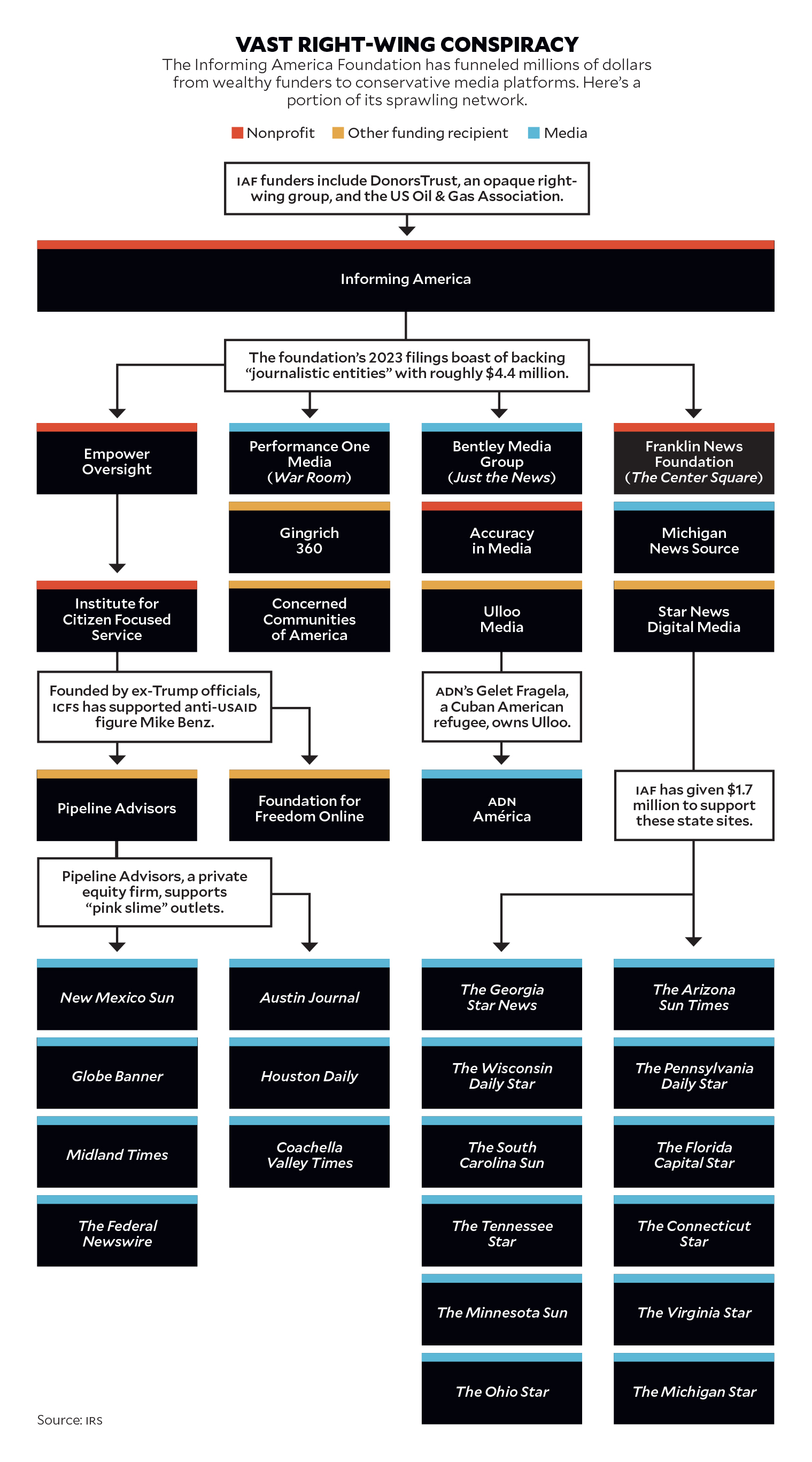
LATE IN THE SPRING while watching CNN NewsNightthe network’s sometimes-rowdy roundtable debate show, I caught a typically overheated exchange concerning Donald Trump’s efforts to freeze Harvard University’s research funding. As host Abby Phillip moderated the discussion, conservative pundit Scott Jennings insisted that Harvard was “turning out a bunch of professors . . . who appear to be schooled in one thing only: the downfall of Western civilization.”
While this sort of hackish overstatement has become almost ubiquitous in television commentary, I did a double-take when I heard these words—not because of what was said, but who was saying it. Surely Jennings, of all people, did not believe all Harvard professors preached the downfall of the West. Phillip offered a gentle correction by citing famous conservatives associated with Harvard, like Tom Cotton and Brett Kavanaugh. But she didn’t say the name of the Harvard teacher who would have most definitively put the lie to Jennings’s argument: Scott Jennings.
I know, because I was one of his students.
Anyone who watches NewsNight will recognize Jennings, arguably the most widely reviled member of the show’s stable of regular panelists. He comes in for frequent online mockery (and sometimes elicits his copanelists’ incredulous laughter and stern challenges live on the air) for his smarmy defenses of the actions of the Trump administration. Jennings’s shtick is to advance what he imagines to be the views of normal (that is, Trump-supporting) Americans against the arguments of his liberal and centrist tablemates, an approach that generates seemingly endless viral content for his online supporters and haters alike.
But he wasn’t always this sort of lockstep partisan.
I first met Jennings in 2020 when he was co-teaching a Harvard Kennedy School course with Robby Mook, Hillary Clinton’s 2016 campaign manager. Cross-party pairings like theirs were common at the Kennedy School; they were meant to give students a view from both sides of the political aisle. I enrolled because I had worked on the Clinton campaign and admired Mook’s steady, disciplined approach under historic pressure. Jennings, around that time, still occasionally criticized Trump, most notably in a January 7, 2021 on-ed that ran under the headline, “Trump caused this insurrection and every Republican must condemn it.” He wrote, “These are domestic terrorists, and they ought to be treated like any other terrorist uprising with the full force and fury of the U.S. government.” I didn’t disagree.
While I appreciated Jennings’s willingness to occasionally break with Trump, what stood out to me as I started to get to know him was his fixation on associating himself with elite, purportedly liberal institutions. A small-town kid from Dawson Springs, Kentucky, he often told the story of his journey from rural roots to the ivory tower of Harvard. He got a job in politics right after graduating from the University of Louisville, working on major campaigns like those of George W. Bush and Mitch McConnell before parlaying his experience and background into a career in PR and political commentary. He framed his teaching appointment as the realization of a personal American dream—his arrival in the rarefied air of the nation’s most prestigious university being the moment he well and truly made it. That framing wasn’t incidental. His association with the school seemed central to how he wanted to be seen.
His ambitions extended to television. At the time I was taking their class, both Mook and Jennings were appearing regularly on CNN. I was beginning to get some traction of my own as a young political observer, joining Boston-based television panels and seeing my social media commentary cited in national outlets. But I also wanted to aim higher. So during office hours, I asked both professors how I might get on larger shows.
To my surprise, Jennings told me that for a time he had paid a third-party booking agent around $25 a hit to help get him on CNN. When I later mentioned this strategy to Mook, he reacted with surprise and said he had never heard of anyone else doing that. For Jennings, airtime wasn’t primarily a byproduct of expertise—it was a commodity that could be purchased and developed. The approach worked: Jennings had become a contracted CNN commentator the year before his first Harvard appointment.
Harvard and CNN both welcomed Jennings as a respectable partisan voice of the right—a role for which it gets harder to find suitable candidates every day, as right-wing audiences increasingly get their commentary from nontraditional and fringe sources. In his early days at CNN, Jennings was the serious-looking Republican who could spar with his liberal peers without alienating the mainstream audience. But as the political context changed, his approach did, as well. In today’s media ecosystem, he thrives as a dogmatic Trump surrogate, seemingly unwilling to question anything the president does. Most striking to me is his reversal on the subject of January 6th. The man who once demanded Republicans condemn the attack now frequently downplays itadopting the pro-Trump framing he once warned against.
And this has finally pushed him to castigate the institutions that gave him his lecturer title, his cable platform, and his credibility. He now accuses Harvard of creating a national security threat by admitting students who “fundamentally hate Western civilization.” And he has derided his employer, CNN, for, in his estimation, allowing Democratic guests to misconstrue the president’s words “every day,” characterizing himself as “just the designated driver at a party where everybody else is trying to crash the country into a ditch.”
IT’S HARD TO AVOID FEELING CYNICAL about Jennings’s evolution. But what is more troubling to me is how it reveals a deeper cynicism at the heart of some of America’s most influential institutions, which incentivized Jennings’s moral flexibility to better serve his ambitions. At the organizational level, they are modeling those behaviors themselves.
For example, CNN is undergoing a shift to the right. In 2022, the network brought in a new executive, Chris Licht, who purged top progressive talent Don Lemon, elevated Daily Caller alum Kaitlan Collins, and insisted on making a town hall event with the then–former-and-future president “extra Trumpy.” Though Licht’s tenure was relatively short-lived, CNN is continuing to follow the course he set for the network. Recently, Phillip welcomed RFK Jr. booster and fitness coach Jillian Michaels to NewsNight to wax idiotic on the history of slavery in America, specifically taking issue with white people getting blamed for the national abomination. Earlier this week, rightwing polemicist Ben Shapiro was brought on the show to argue with Phillip about Trump’s deployment of the National Guard in American cities.
And while Harvard has just won temporary respite from the Trump administration’s attempt to freeze billions of dollars of the school’s funding, it was widely reported last month that the school was poised to settle with the administration by making a variety of hefty concessions. Harvard President Alan Garber emailed alumni on Wednesday acknowledging the legal victory, but he also wrote that the school would still “be mindful of the changing landscape” going forward. The school has already done much to respond to that changing landscape, including by reducing its DEI efforts, renaming its office of diversity, and entertaining the idea of a $500 million-to-$1 billion investment in a new center for conservative scholarship. The moves that Harvard and other universities have made to appease Trump prompted one Atlantic writer to claim “the era of DEI for conservatives has begun.”
Both Harvard and CNN seem downright eager to make nice with MAGA if it serves their interests—apparently, even to a point of compromising the values they claim to uphold. Was it reasonable for us to expect them to behave differently?
Jennings, for his part, remains on contract with CNN. He has signaled nascent political ambitions, expressing interest in running for McConnell’s soon-to-be-vacant Kentucky Senate seat—but only if he receives Trump’s blessing to do so, of course. He has also written a book and launched a radio show.
He recently scored a high-profile guest for his show: Trump himself. In a clip Jennings shared on X, the president rambled about tariffs as his host smiled complacently. It looked the expression of a man who has gotten everything he wants.












































